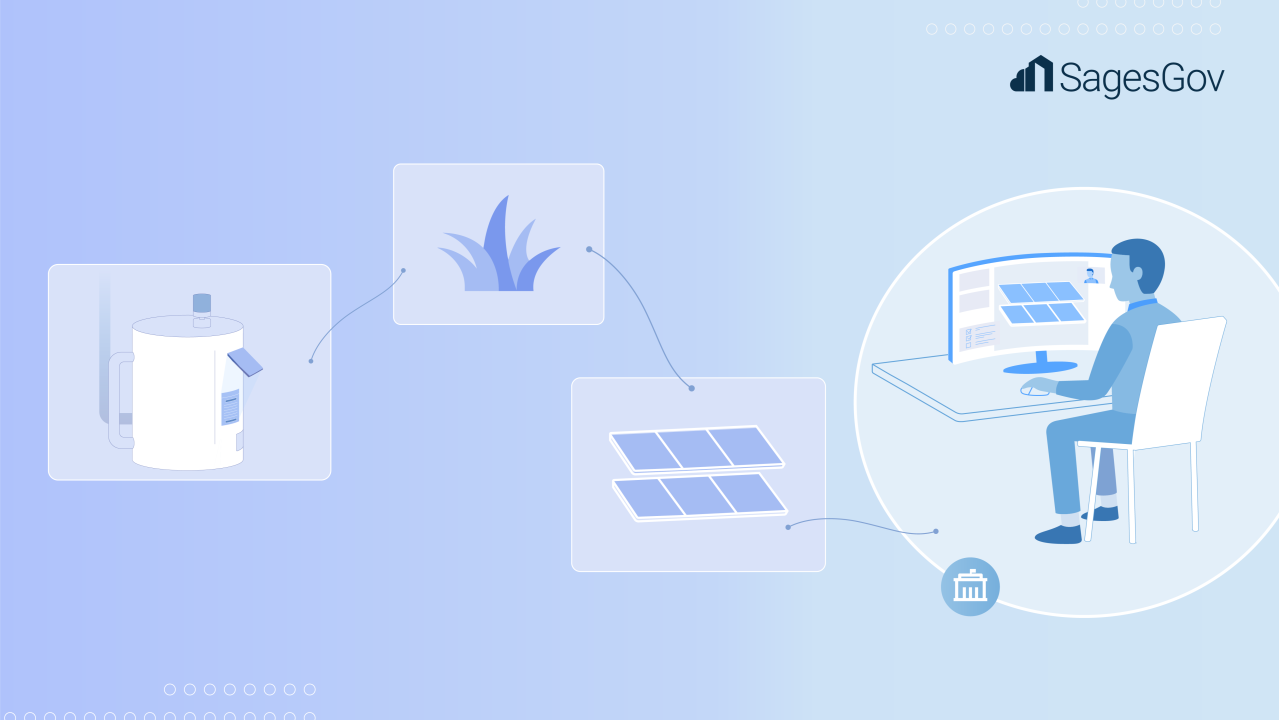Benefits of Implementing Remote Inspections for Government Agencies

Remote inspections are transforming how development and code enforcement departments operate, delivering convenience, efficiency, and safety. In this blog, we’ll explore how these key benefits impact development departments, code enforcement departments and your customers. This article looks at benefits for Development departments.
Benefits for Development Departments
Development departments are responsible for overseeing construction projects, ensuring compliance with building codes and safety standards. Remote inspections provide a unique set of advantages that align with these objectives:
- Time Savings for Jurisdictions: Remote inspections eliminate the need for inspectors to travel across sites, drastically reducing the time required to conduct and complete inspections. This allows jurisdictions to manage a higher volume of projects more efficiently, leading to faster approval processes and a reduction in backlogs. Inspectors can perform multiple inspections in a day from their office, maximizing productivity while avoiding time lost on travel and scheduling conflicts.
Customer Benefits: Instead of having to wait all day for an inspection, customers can be present at a specific time for their remote inspection thus saving a lot of time in their day.
- Cost Efficiency for Jurisdictions: With fewer travel requirements, government agencies experience lower transportation and staffing costs. Additionally, virtual documentation and archiving reduce the expenses associated with paperwork and physical storage. Inspectors benefit from lower fuel and vehicle wear-and-tear costs, while agencies can reallocate resources to more critical infrastructure projects.
Customer Benefits: As jurisdictions can save on inspector time, travel and other expenses of a typical onsite inspection, these savings are passed on to the customer with lower / no increase in permit fees.
- Improved Customer Service: Faster response times lead to improved customer satisfaction. Property developers and construction companies appreciate the expedited process, which allows them to proceed with their projects without unnecessary delays. Inspectors can provide timely feedback to developers, fostering better communication and streamlining the project’s progress without long wait times between inspections.
Customer Benefits: Remote inspections allow Realtime interaction with the inspector, greatly helping in the customer understanding issues identified by the inspector reducing back and forth with the jurisdiction.
- Enhanced Safety: Inspectors can assess remote sites without needing to enter active construction zones, which may present safety risks. This reduces the likelihood of injuries or accidents on-site, ensuring inspectors are not exposed to potentially hazardous environments. : Inspectors can evaluate compliance without being physically present in risky environments, prioritizing their safety.
Customer Benefits: Since inspections are performed remotely, there is no need for the customer to allow inspectors on premise thereby eliminating security issues.
Benefits for Code Enforcement Departments
Code enforcement departments play a crucial role in ensuring quality of life for citizens by addressing violations that could pose health, safety, or environmental risks. The benefits of remote inspections for this department often emphasize safety even more strongly:
- Enhanced Officer Safety: Code enforcement inspectors frequently work in environments that can be dangerous, such as dilapidated properties, hazardous structures, or crime-prone areas. Remote inspections drastically reduce physical presence in such areas, minimizing exposure to unsafe conditions. Inspectors can also avoid direct interaction with hostile occupant or property owners, by performing remote inspections.
- Time and Cost Savings for Jurisdictions: Like building departments, code enforcement departments also benefit from reduced travel times and operational costs. Remote inspections allow jurisdictions to deploy fewer resources while covering a wider area, ensuring violations are addressed more promptly. Inspectors can handle a greater number of cases in a shorter time frame, reducing stress and boosting their efficiency. Inspectors experience greater convenience, managing their workload remotely and benefiting from a less stressful working environment.
- Customer Convenience: Remote inspections provide a convenience factor for both inspectors and citizens. Residents no longer need to schedule visits or prepare their properties for in-person evaluations, and inspectors can complete their work without intrusion. Code enforcement departments can respond to complaints faster than traditional inspection methods. Faster clarification of issues that are relevant to the Code Enforcement department. Example: Complainant is not sure about an issue in their neighborhood but would like the Code Enforcement department to investigate. Using Remote Code Enforcement inspections, customers can get a determination on whether the inspection is a Code Enforcement violation or not immediately.
- Improved Quality of Life for Citizens: Faster response times mean that code enforcement issues are resolved more quickly. Citizens are not frustrated when code enforcement issues are addressed faster and more efficiently, reducing the tension often associated with delayed responses. This directly impacts the quality of life for citizens, ensuring their environments are safe and compliant with regulations.
In Conclusion
Implementing remote inspections offers significant benefits to both development and code enforcement departments. From enhanced safety to improved customer service, these inspections provide a modernized, efficient solution that meets the evolving needs of government agencies. By adopting remote technologies, jurisdictions can save time, reduce costs, and improve the quality of life for both inspectors and citizens, making remote inspections a win-win for everyone involved.
- Cost savings: Reduction in travel, fuel, and administrative costs.
- Time savings: Inspections can be completed more quickly, allowing jurisdictions to address more cases.
- Safety: Inspectors remain out of harm’s way by conducting inspections remotely.
- Improved customer service: Faster inspections lead to happier property owners and developers, who can proceed without delays.
- Increased convenience: Both inspectors and citizens benefit from the flexibility of remote processes, with no need to accommodate physical presence or preparation.
- Boosted public trust: By addressing code and safety violations faster, jurisdictions foster a sense of responsibility and care for their communities.
Discover how SagesGov brings speed, transparency
and efficiency to your Electronic Plan Review process.
Related Posts
Best Practices for Implementing Remote Inspections in Government Agencies
Download the whitepaper to discover how government agencies can eliminate delays, reduce costs, and enhance efficiency. Our innovative solution leverages mobile devices and video conferencing to conduct inspections without on-site visits, ensuring faster approvals and increased productivity.
